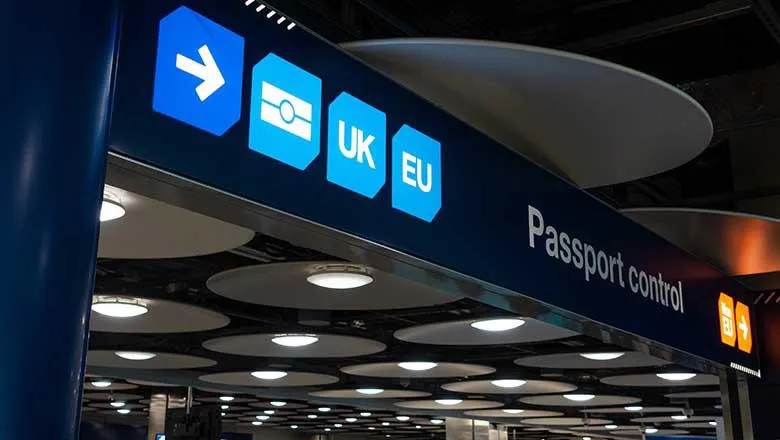16 March 2020
New report shows scope for less heated immigration debate with public
Polling shows that immigration isn't a top priority issue for voters compared with 2016

A new report from the Policy Institute and British Future shows that, in the run up to the 2019 election, immigration had become a less heated electoral issue, with more positive views than in the past, and most of the public holding balanced views.
The fieldwork was conducted by ICM in January to assess the impact of the election, before the COVID-19 outbreak was top of mind. The research and report provide important insights into the long-term evolution of public opinion and how policy-makers should respond in the future.
Immigration ranked ninth out of ten issues that voters considered “very important” in the 2019 general election, with only 41 per cent saying that policies on immigration were “very important” when deciding which party to vote for – compared to 74 per cent for the NHS, 59 per cent for Brexit and also behind crime, social care, education and the environment. This marks is a big change from 2016, when research consistently found immigration to be the public’s number one issue of concern.
Most people are “Balancers” on immigration, according to the report, wanting more control of some immigration and worrying about local impacts, while also recognising the gains that immigration brings and welcoming many types of immigration to Britain. Asked to rate the impact of immigration on the UK on a 1-10 scale (with 1 very negative and 10 very positive), most people in the UK (56 per cent) are “Balancers”, giving a score of 4-7. That is true of 2019 Conservative voters (55 per cent), Labour voters (57 per cent) and Lib Dems (55 per cent).
More than three-quarters of the public would be happy for the numbers of high-skilled workers coming to the UK from the EU (79 per cent) or outside the EU (77 per cent) to stay the same or increase. Some 64 per cent would like to see the numbers of international students coming to the UK either remain the same or increase. But 51 per cent of people would like to reduce the amount of lower-skilled EU migration to the UK.
The research also suggests that there would be public support for a flexible approach from government towards workers in some sectors, such as social care. Some 63 per cent of people said that there should be exceptions to a salary threshold for people moving to the UK to do important jobs that need doing, such as nurses and care workers. That sentiment was shared across political divides, with agreement from 62 per cent of 2019 Conservative voters, 67 per cent of Labour voters, 58 per cent of Leave voters, and 73 per cent of Remain voters.
The authors identify public confidence as a major issue for the government. People do not trust the government to manage immigration well – just 15 per cent agree that the government has managed immigration competently and fairly.
The “Reset moment” for immigration policy after Brexit offers an opportunity for the government to rebuild trust with a more pragmatic and constructive approach to immigration, the report authors argue.
British Future Director, Sunder Katwala, said:
“Boris Johnson has an opportunity now to bring more light and less heat to the immigration debate – because of how attitudes have changed since the 2016 referendum. With the debate now more open, people can't really claim they're not allowed to talk about immigration. The question is what choices we should make.
“This research confirms that most people are 'Balancers' on immigration, wanting to manage the pressures better and to keep the gains too. Without the millstone of the net migration target around his neck, the Prime Minister can make his case that taking back control should mean Britain welcoming the migration we decide to keep.
“And by making the missing links between immigration and integration policy, we can forge an approach that's fair to those who come to live and work in Britain, and to the communities that they join too.”
Professor Bobby Duffy, Director of the Policy Institute at King’s College London, said:
“It’s often imagined that the public can be divided into groups that are either utterly in favour of immigration or dead set against it. This study shows that most are in the middle, with views that depend on the type of immigration you are talking about.
“Those views have also shifted over recent years, with a particular drop in how high immigration ranks in peoples’ minds. This provides a great moment to reset our approach.
“No government has been rated highly on immigration policy for decades, and there is no simple answer that previous governments have just ignored. But understanding the nuance and trajectory in peoples’ views could help the government take advantage of this opportunity.”
